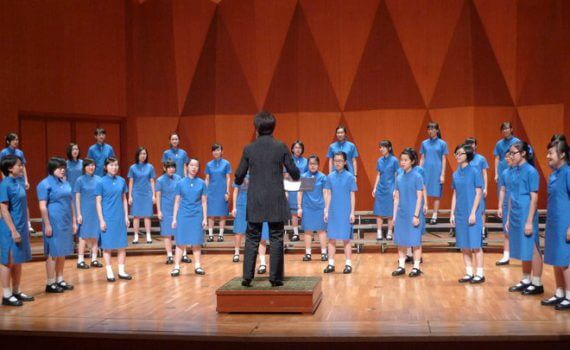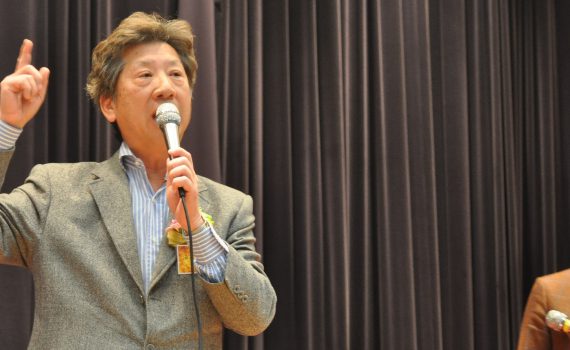Veteran pro-establishment politician defends Basic Law
- 2013-12-15
Pro-establishment politician Ms Maria Tam Wai-chu says the Basic Law must be followed in Hong Kong's strive for universal suffrage
As evening falls on a normal weekday, Ms Maria Tam Wai-chu says goodbye to the last departing colleague, puts aside the work she still has to get back to at night, and then delightfully signals she is ready for the interview.
Working overtime has been a routine for her since she stepped into politics 34 years ago. Known as the "quadruple councillor" back in the 1980s, Ms Tam was the only person who managed to serve on the former British colony's Executive Council, Legislative Council, Urban Council and the Central and Western District Board at the same time.
"I had no time to think about myself, or my worries," the 68-year-old politician recalls. "Every day I was just clearing the in-trays and making sure the documents go into the out-trays."

Currently a member of the Basic Law Committee and a deputy to the National People's Congress, she played an influential role in shaping the future of Hong Kong in the 1980s, first as an Excutive Councillor during the negotiations between China and Britain on the future of Hong Kong after 1997 and then as a member of the Basic Law Drafting Committee.
Ms Tam still considers July 1, 1997, when Hong Kong officially returned to China, as "the most memorable day" and regards the "smooth" and "orderly" transfer of sovereignty as the results of the joint efforts of her and colleauges involved.
But the fervent upholder of the Basic Law is disappointed that some people in Hong Kong spurn the "mini-constitution" most of the time.
"Every time when people have to look at the Basic Law, there is already a big argument," she said.
Asked about the current "big argument" over electing the next Chief Executive in 2017 by universal suffrage, she said Hong Kong's political system, including its electoral system, should be based on the central government's decision because Hong Kong was not a sovereign state.
"Hong Kong is given the opportunity to have universal suffrage because China says ‘you can have it'," she said, adding that the concept of one-man-one-vote appears in the Basic Law but was not stipulated in the Sino-British Joint Declaration signed in 1984 or any constitutional documents under the British rule.
"When Hong Kong people are looking for universal suffrage, they must look at it within the framework of the Basic Law," she said. "This is a fact and that is the only answer."
Ms Tam said on two occasions earlier this year that every citizen's rights to nominate and stand for election were not covered under Article 25 of the International Covenant on Civil and Political Rights, an assertion much slammed by law experts as distorting the covenant's provision on universal suffrage.
She also expressed concerns on several other occasions over Occupy Central, a civil disobedience movement deemed as Hong Kong's last-ditch attempt to win universal suffrage.
Ms Tam told The Young Reporter that the central government wanted to implement universal suffrage in Hong Kong to make it easier for an elected Chief Executive to achieve consensus among people on other issues.
"There is a common goal. The only gap is whether you follow the Basic Law or not," she added.
The pro-Beijing politician's "long and dedicated public and community service", as described in a government press release, won her a Grand Bauhinia Medal this year.
"I think there are a lot of people in Hong Kong who deserve the honour. I just happen to be somebody who has the longest period of service," she said.
But not everyone think Ms Tam, who is also an adviser on party affairs to the Democratic Alliance for the Betterment and Progress of Hong Kong, deserves the honour.
Critics including Labour Party chairman Mr Lee Cheuk-yan said Ms Tam was given the medal only because "she said exactly what Beijing wanted her to say".
"She has always been trying to delay political reform," said Mr Lee, adding that Ms Tam did not stand up for Hong Kong in 2004 when the National People's Congress issued an interpretation of the Basic Law that ruled out electing the Chief Executive by universal suffrage in 2007.
Responding to the criticisms, Ms Tam said she did everything according to the Basic Law.
"I don't need to defend for myself," she said. "My job is a goalkeeper for the Basic Law, no matter how I'm criticised."
Reported by Steven Wang
Edited by Song Cheng
《The Young Reporter》
The Young Reporter (TYR) started as a newspaper in 1969. Today, it is published across multiple media platforms and updated constantly to bring the latest news and analyses to its readers.

"Sextortion" on the rise

Music education is used as a tool for students to race to the top




Comments